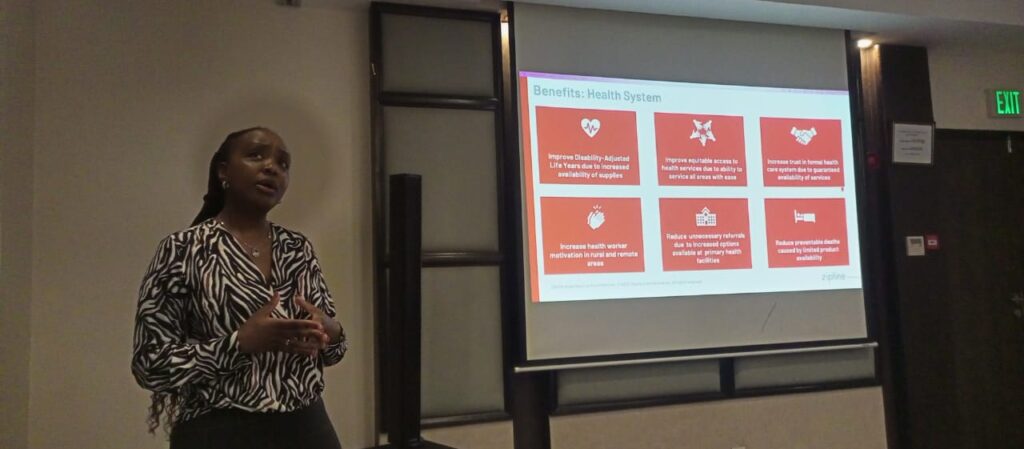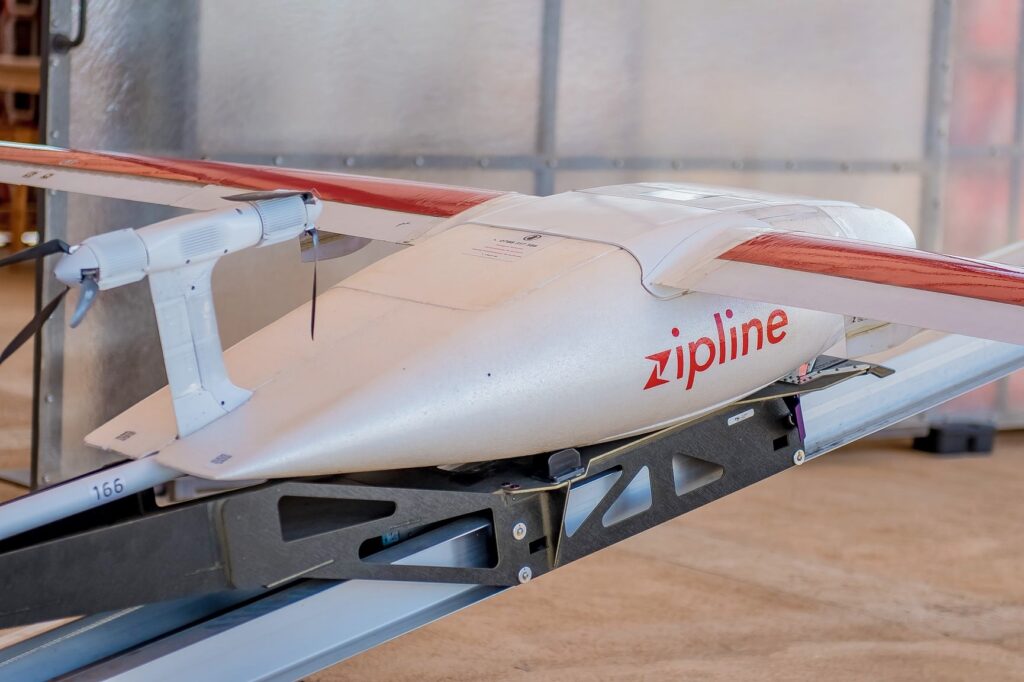Kisumu is set to save millions of shillings in its health budget starting next year.
This follows the planned rollout of innovative technological delivery of the supplies through a drone.
The county government in February signed a Memorandum of Understanding with Zipline, a drone technology logistic company.
The installations are complete, and the warehouse is set to be complete in within this month
Winfred Njeri, Zipline Country Manager, Kenya
The deal will see the company use special drones to deliver medicine and medical supplies to health facilities across the county.
The company is putting final touches on its drone launching centre in Chemelil.
The centre will also host a warehouse where the medical supplies will be stored.
Aviation license
According to Winfred Njeri, Zipline Country Manager in Kenya, the centre is set to be ready for operationalization by the end of this month.
In the meantime, the company is in advanced stages of acquiring drone operation license from the Kenya Aviation Authority.
“The installations are complete, and the warehouse is set to be complete in within this month,” said Njeri.
Ms Njeri noted that in areas where the technology has been used, the cost of delivery of medical supplies was reduced by 70 per cent.
Some of the costs which come with use of motor vehicle in the delivery include fueling of the cars, maintenance, insurance costs, and the costs from the personnel in the distribution chain.

And even with this cost, the time factor is compromised, as it takes between four and six hours to deliver the supplies in some facilities.
But Njeri said the drone technology takes between 10 and 45 minutes to deliver the supplies within an area within the radius of 80 to 120 kilometres from the Zipline centre.
“The benefits are more because the human resource deployed in the delivery chain can be utilized in other areas where their services are needed,” she said.
Cost cutting
Kisumu allocates over Sh2 billion annually to the health department.
According to County Health Chief Officer Dr Gregory Ganda, delivery of medical supplies is one of the main costs.
Even though he could not quantify how much the delivery services gobbles annually, he noted that this technology has the potential of helping the department make significant saving.

“The costs associated with delivery of medical supplies are varied. We have the means of transport, the staff costs, the work hours lost, and the lives at risk especially in emergencies,” said Ganda.
He noted that Kisumu will conduct a six months pilot of the services to ascertain its efficiency and viability.
It is after the six months pilot period that we will be able to quantify how much we are able to save from using the technology
Gregory Ganda, Health CO, Kisumu County
“The information we have from other areas where the technology is being used is that it leads to huge savings from the delivery spend,” he said.
He added: “It is after the six months pilot period that we will be able to quantify how much we are able to save from using the technology.”
Once operationalized, the technology will see medical supplies packed in special boxes, fitted in the drones which then deliver them in specific locations.
The technology uses specific routes identified through digital mapping and identification of locations.
Ms Njeri said health staffs in identified hospitals have already been trained on the operations of the system, which includes requisition of medical supplies, and receiving them at designated points within the facilities.
